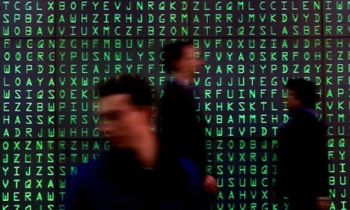The last time The Inquirer and Philadelphia Daily News changed owners, in 1970, circulation was down, competition was up, and the papers' fate was in the hand of a distant corporation.
Seems like old times. Philadelphia Newspapers Inc., which publishes what are now the city's two major dailies, has the largest circulation and the biggest advertising sales among the 29 markets served by the Knight Ridder Inc. newspaper chain.
But while The Inquirer and Daily News account for more than one-sixth of Knight Ridder's revenue, they contribute less than one-tenth of the company's operating profit.
Stuck in a slow-growth market, facing advertiser consolidation and a steady shift by readers and ads from its printed pages to its less-profitable Internet sites, PNI is not in a happy place at a time when the parent company is for sale.
Last fall, under pressure from its largest shareholder, Private Capital Management Inc., Knight Ridder agreed to look for a buyer for the entire chain, which is based in San Jose, Calif., and also includes newspapers in Miami, Charlotte, N.C., and Fort Worth, Texas.
PNI publisher Joe Natoli and his lieutenants have scrambled to boost online ads, maintain print advertising and circulation, and fill gaps created by 100 newsroom buyouts last year. Now they also get to wonder who they will be working for. At least one senior executive, human resources director David Vidovich, left in recent weeks, taking a job at Tasty Baking Co., although Vidovich said he had been thinking about the move before Knight Ridder went up for sale.
Natoli called the potential sale "distracting" but added that the company still generates significant profits. He tells his staff to keep providing "compelling" news, good customer service, and "the best return on investment for an advertising dollar."
Meanwhile, would-be owners are touring company offices and work areas. William Dean Singleton, chief executive officer of the Denver-based MediaNews Group newspaper chain, and Norman Alpert, head of Vestar Capital private investments in New York, visited last week. They were joined by Gary L. Watson, former newspaper chief at Gannett Co. - another potential buyer.
Knight Ridder wants to sell the papers as a group to avoid the tax impact of selling them individually. Since no single buyer has emerged, analysts speculate that a group of newspaper chains and private investors might make a joint bid, with the expectation that some properties could later be sold. One private investor, Yucaipa Cos., of Los Angeles, says it wants to participate in the purchase of nine unionized papers, including the two in Philadelphia, with support from the Newspaper Guild union.
How likely is a break-up of the chain? "Private equity guys really have to struggle with that," said Susan Casey, media analyst at Houlihan Lokey Howard & Zukin in Los Angeles. "The concern they have is, where do they exit? What will the landscape look like in five years?"
Analysts are uncertain whether buyers will be willing to pay much more - for all of the company or pieces of it - than the $63 per share it has fetched in recent trading.
"These companies... have rightsized their workforces already. So what's the upside?" said Seth Lehr, a founding partner of LLR, a Philadelphia private investment firm.
Like an old-fashioned editor, no matter how good you are, Wall Street wants to know what you've done for it lately. Public companies are under constant pressure: Boost sales or cut costs, but don't let profit fall, or someone will buy you out.
Employment at Philadelphia Newspapers peaked at 4,000 in the late 1980s. Since then a series of cutbacks has dropped the total to less than 2,800.
Inquirer circulation also peaked in the 1980s, at more than a million on Sundays and half a million on weekdays, but has slid steadily to about 358,000 daily and 715,000 on Sundays, according to the Audit Bureau of Circulation - although some of the loss can be attributed to changes in accounting. Natoli, PNI's publisher, says readership is actually growing, counting readers of Philly.com.
Most important, from a financial perspective, advertising sales peaked in 2000, at $472 million, tumbled almost to $400 million the next year, and have stayed at or below that level ever since. Natoli says the company's share of sales through Careerbuilder.com, Shop Local, Apartments.com, Topix.net and other sites Knight Ridder has a stake in will boost future profits.
All that leaves potential buyers - of Knight Ridder as a whole, and of PNI in particular - mulling whether the Philadelphia papers have the potential to boost future print advertising and Internet income, or are an industry and a market in decline.
PNI remains the largest single source of advertising and news in one of the nation's five largest markets. This despite the fact that, as Lehman Bros. noted in a recent report, newspapers as a group command half the advertising market share they held in the 1960s. Natoli notes that broadcast news has lost even more ground.
A few local investors have made discreet inquiries about buying the papers, although one of them, advertising executive Brian Tierney, calls the business "awfully complicated" and discouraging to all but the biggest buyers.
Local business leaders don't seem too upset by the prospect that one set of outside owners may soon replace another. But academics and veteran news professionals have sounded concerns about the possibility that new owners will cut newsrooms further to boost profit.
Calling news a public service, communications professors, retired editors, and a Daily News columnist have asked nonprofit foundations to take over the papers as a public trust. Rebecca Rimel, head of the Pew Charitable Trusts, said in November that foundations like hers have a role in discussing the future of the papers.
But Pew board member R. Anderson Pew dismisses talk of his foundation owning the paper, saying "newspapers aren't charities."
How much is Philadelphia Newspapers Inc. worth?
"It's worth what people will pay for it. That's Economics 101," cracked Chuck Faunce, director and valuation specialist at Devon-based Smart and Associates L.L.P.
Investment bankers like to say that each deal is idiosyncratic, and that a range of prices can be justified by a determined buyer and its hired experts.
Any investor trying to come up with a reasonable price for PNI faces some tough basic questions. Among the most important: Which corporate assets, debts and other liabilities will be assigned to the Philadelphia papers in case of a sale?
Knight Ridder points to the success of one of its online partnerships, CareerBuilder.com, which posts help-wanted ads in partnership with newspapers at Gannett and Tribune Co., and claims to be the most popular online help-wanted site.
But "we are not sure where the online properties would end up were the company to be sold," and that could make it tougher to price individual Knight Ridder papers, analyst Jake Newman of CreditSights, a British-based bond analysis firm, warned in a recent investor report.
The papers also control a string of weekly neighborhood newspapers, free ad books, and some prominent real estate. Publisher Natoli says the Northeast Times, The Trend, and other "community publications" reach "more than one million households each week.
PNI's key real estate holdings include the office tower and former newspaper plant that take up a block of Callowhill Street between Broad and 15th in Center City, plus the Schuylkill Printing Plant in Upper Merion.
The tower was assessed at $10 million in 2003. But real values are "tough to say," said Eugene Davy, director of assessments for the city. "Maybe you could gentrify the tower and put in condos... But it's not approved for that kind of development."
The printing plant, opened in 1992, was assessed by Montgomery County in 1998 at a market value of $55 million. But last year, PNI successfully lowered the assessment to show a market value of $35.5 million - although that's cheaper than neighboring sites.
Most of the company's value "is intangible," said Faunce, the valuation specialist. It's customer lists, brand identity, advertising and reader relationships. "There's no real way to know for sure" what those are worth, he added.
To justify high purchase prices, newspapers need to convince buyers they can add sales, not just cut costs.
Numbers aside, there may be local buyers who would pay a premium for newspapers because they expect intangible benefits.
"There are still rich guys who think it makes them king of the community if they own the news," said Susan Casey, media analyst at Houlihan Lokey Howard & Zukin, a Los Angeles investment bank that concentrates on midmarket companies. It's the kind of multimillionaire who might buy a sports team, in part, for the prestige factor. "They want to be heard - they want a platform - and the big metro dailies don't change hands very often."
Are newspapers really a platform of the future? Now that affluent Americans can buy digital programming straight from Web sites and entertainment media, mass-market newspapers and broadcasters "are going to survive because of the digital illiterate - the poor - who... are going to continue to put up with advertising as part of the price" for free or low-cost content, argues Eric C. Meltzer, managing director at Curtis Financial Group L.L.C. and a former magazine publisher. He says the trend is well along, as papers like The Inquirer cut pages and features like their Sunday magazines.
Natoli is pushing a contrasting vision of locally based, nationally networked advertising built around "our rich, authoritative content." Print and online newspaper products offer "news, information and advertising in multiple forms: in print, online, through mobile devices, Pod-casting, 24 hours a day. Consumers will determine how and when to access our journalism and advertising. Over time, the advertising revenue will follow the audience."
Knight Ridder wants to know: Who's buying that vision and how much will they pay?
Valuing Companies? It's Magic
Valuing companies is like "black magic," especially for subsidiaries like PNI whose financial information is not readily available, said Glenn Rieger of NewSpring Capital in King of Prussia. Here are some approaches suggested (with many warnings) by investors and dealmakers:
Check the comps: Pulitzer Co., of St. Louis, sold last year at $1.46 billion - more than three times earnings, or 14 times cash flow (sales minus operating costs, not counting taxes, depreciation, interests and other financial costs.) By comparison, PNI is roughly the same size.
Stock market rules: Knight Ridder is worth $4.2 billion on the New York Stock Exchange at recent prices. Since PNI is roughly one-sixth of the company's sales, one-seventh of its circulation, and one-tenth of its profit, investors could put a value on PNI of roughly $420 million to $700 million.
Rosy assumptions: Analysts said a motivated buyer would be willing to consider what a company ought to be capable of earning. Based on the revenue-to-expected-cash-flow numbers from recent deals, PNI could justify a value of as much as $1.7 billion, not including debt, said Neal McCarthy, managing director at Fairmount Capital Partners.
Don't forget the debt: Knight Ridder owes more than $2 billion. What is Philadelphia's share? asks Jake Newman, analyst at CreditSights, a London bond analysis firm. The total should be considered part of the deal price, he said.
The customer is king. Dividing sales by circulation, the typical Knight Ridder customer generates nearly $1,100 in revenue. Recent newspaper deals have valued each customer at two to four times yearly customer revenue. In PNI's case, that would suggest a value of $1 billion or more.









